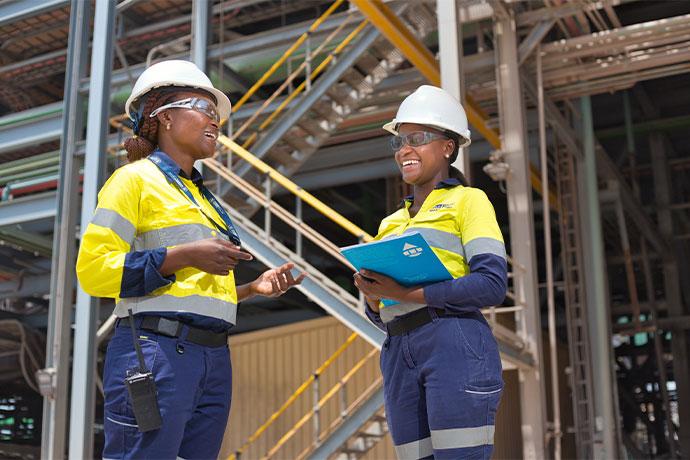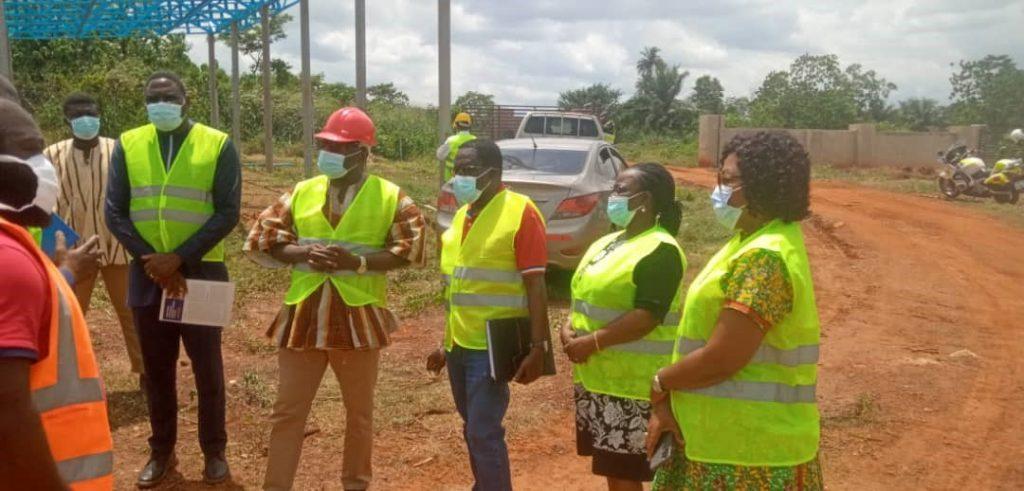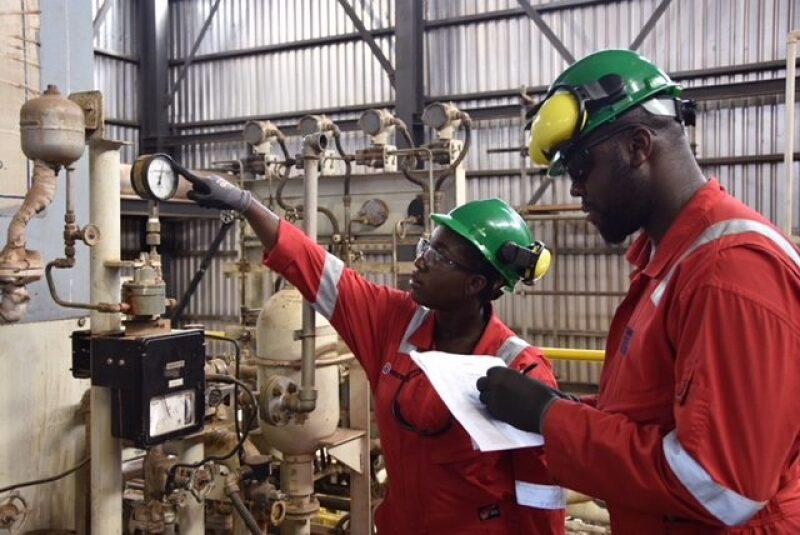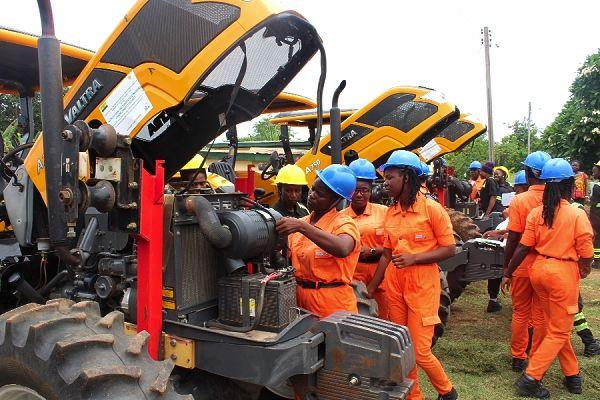Explore Our Bill Payment Services:

- Salary And Allowance
- Engineers Salary
- Ghana
Salaries And Allowances Structure Of Mining Engineering In Ghana
Mining engineering in Ghana is one of the most prestigious and rewarding career paths in the country. With Ghana ranking as one of Africa’s top gold producers and a major exporter of other minerals such as manganese, bauxite, and diamonds, mining remains a central pillar of the national economy. This thriving sector creates immense opportunities for skilled engineers who ensure that exploration, extraction, processing, and safety are managed efficiently.
The career of a mining engineer is not only lucrative but also highly demanding. These professionals often work under challenging conditions, including remote locations, long hours, and exposure to physical risks. To compensate for these challenges, the salary and allowance structure for mining engineers in Ghana is comparatively attractive. However, earnings can vary significantly depending on education level, years of experience, company size, and location.
In this guide, we will break down everything you need to know about the salary and allowance structure of mining engineers in Ghana—from entry-level pay to senior positions, as well as benefits, allowances, and promotion-related increments.
Overview: The Salary Landscape
The mining sector is one of the highest-paying industries in Ghana. Salaries in mining engineering are determined by a combination of experience, education, and skill level. Unlike other engineering fields where earnings may plateau after a certain number of years, mining engineering offers continuous growth due to the increasing demand for technical expertise and leadership as one progresses through their career.
The nature of mining work means that engineers are often rewarded not just for their technical knowledge but also for their ability to manage safety, lead teams, and adapt to the operational and geographical challenges of the industry.
Salary by Experience Level
Experience is one of the biggest factors in determining how much a mining engineer earns in Ghana. Here’s how annual salaries progress with experience:
-
0–2 years: ~GHS 32,020 annually
-
2–5 years: ~GHS 40,140 annually
-
5–10 years: ~GHS 53,380 annually
-
10–15 years: ~GHS 65,800 annually
-
15–20 years: ~GHS 69,400 annually
-
20+ years: ~GHS 74,380 annually
This progression highlights a steady increase in pay, with professionals at the senior level earning more than double the salaries of their entry-level counterparts.
Salary by Educational Qualification
Educational attainment also plays a critical role in determining salaries. Generally, mining engineers with higher qualifications command significantly better salaries than those with only basic degrees.
-
Bachelor’s degree holders: ~GHS 39,160 annually
-
Master’s degree holders: ~GHS 58,440 annually
The data shows that obtaining a master’s degree can boost earnings by about 60%. For those who aspire to leadership roles or specialist positions, investing in further education can dramatically enhance long-term career prospects.
Alternative Salary Ranges for Mining Engineers
In addition to the structured annual salaries, many mining companies offer monthly salaries within broader brackets depending on skill and responsibility levels:
-
Entry-Level: GHS 7,000–9,000 per month
-
Mid-Level: GHS 9,500–12,000 per month
-
Senior-Level: GHS 12,500–18,000 per month
Translating these into annual earnings:
-
Entry-Level: GHS 84,000–108,000
-
Mid-Level: GHS 114,000–144,000
-
Senior-Level: GHS 150,000–216,000
These figures reflect the fact that mining engineers are among the top earners in Ghana’s engineering sector, especially at mid- to senior-level positions.
Monthly Salary Breakdown by Experience and Education
Another way of looking at mining engineer earnings in Ghana is through average monthly salaries, depending on experience and educational background:
| Experience Level | Average Monthly Salary (GHS) |
|---|---|
| ≤ 2 years | 2,400 |
| 2–5 years | 3,140 |
| 5–10 years | 4,400 |
| 10–15 years | 5,280 |
| 15–20 years | 5,740 |
| 20+ years | 6,190 |
| Bachelor’s degree holders | 2,970 |
| Master’s degree holders | 5,260 |
This breakdown shows how earnings steadily increase with experience and education. The difference between bachelor’s and master’s degree holders further emphasizes the importance of advanced qualifications in this field.
Graduate Mining Engineer Salaries
Fresh graduates entering the mining industry in Ghana typically receive base pay and additional allowances. A graduate mining engineer earns around:
-
Base pay: ~GHS 2,340 per month
-
Additional allowances and bonuses: ~GHS 4,800 per month
-
Total compensation: ~GHS 7,151 per month
This clearly shows that allowances and incentives can sometimes exceed base salaries, significantly improving take-home pay for young professionals.
Allowances and Benefits
In addition to basic salaries, mining engineers in Ghana enjoy a variety of allowances and benefits, which make their total compensation even more attractive. These include:
-
Risk and Hardship Allowance: Compensation for working in hazardous or remote conditions.
-
Housing Allowance or Accommodation Provision: Many companies provide free or subsidized housing, particularly in mining towns.
-
Transport Allowance: Covers commuting costs or provides company vehicles for site visits.
-
Medical Allowance and Health Insurance: Comprehensive health packages often extended to family members.
-
Overtime Allowance: Payment for extra hours, which is common in mining due to unpredictable operational demands.
-
Professional Development Allowance: Recognition for engineers who hold professional certifications or belong to engineering bodies.
-
Performance Bonuses and Profit Sharing: Rewards based on individual or company performance, often paid annually.
-
Pension and Retirement Benefits: Long-term financial security through retirement schemes.
These allowances can add anywhere from GHS 1,000 to GHS 6,000 per month to an engineer’s earnings, depending on the company and the level of responsibility.
Career Progression and Promotions
Mining companies in Ghana often provide clear career progression paths. A typical journey might include:
-
Graduate Trainee → Junior Mining Engineer → Mining Engineer → Senior Mining Engineer → Mine Supervisor → Mine Manager → Senior Management.
At each stage, salaries and allowances increase significantly. Promotions often come with increments of 20% to 50%, in addition to enhanced benefits such as larger housing allowances, higher bonuses, and profit-sharing opportunities.
Gender Pay Disparities
Like in many industries, mining engineering in Ghana is not immune to gender pay disparities. On average, male mining engineers earn about 12% more than their female counterparts. This gap is influenced by factors such as representation in senior roles, negotiation dynamics, and work-life balance considerations. Efforts are being made by industry stakeholders to promote gender equity, but progress is gradual.
Salary Synthesis: Putting It All Together
To summarize, here’s how salaries and allowances stack up at different career levels:
Entry-Level (0–2 years)
-
Base Salary: GHS 2,400–7,000 per month
-
Total Compensation (with allowances): GHS 3,500–10,000 per month
Mid-Level (2–10 years)
-
Base Salary: GHS 3,140–4,400 per month
-
Total Compensation (with allowances): GHS 5,000–14,000 per month
Senior-Level (10+ years)
-
Base Salary: GHS 5,280–6,190 per month
-
Total Compensation (with allowances and bonuses): GHS 10,000–20,000+ per month
This clearly shows how experience, educational level, and company policies combine to shape overall earnings.
Real-World Insights
Beyond official salary data, mining engineers in Ghana often highlight the importance of negotiating net salary instead of gross salary. This ensures clarity on take-home pay after taxes and deductions.
Additionally, mining engineers working in remote or high-risk areas usually earn significantly more than those based in urban offices, thanks to hardship and risk allowances. For professionals who are adaptable and resilient, this can make mining engineering one of the most financially rewarding careers in the country.
Summary Table
Here’s a concise table summarizing mining engineer salaries in Ghana:
| Career Stage | Base Salary (Monthly) | Total Compensation (With Allowances) |
|---|---|---|
| Entry-Level | GHS 2,400–9,000 | GHS 3,500–10,000 |
| Mid-Level | GHS 3,140–4,400 | GHS 5,000–14,000 |
| Senior-Level | GHS 5,280–6,190 | GHS 10,000–20,000+ |
Final Thoughts
Mining engineering in Ghana is not just a job—it is a career that combines technical skill, resilience, and leadership with impressive financial rewards. Salaries grow steadily with experience and education, while allowances can significantly boost total earnings.
For young graduates, the field offers one of the highest entry-level salaries in the country, with additional benefits like housing and risk allowances. For mid- to senior-level professionals, it opens doors to high-paying managerial roles, profit-sharing, and long-term retirement security.
Ultimately, mining engineering is both challenging and rewarding. Those who are willing to embrace the demands of the industry will find it to be one of the most financially and professionally satisfying career paths in Ghana.









